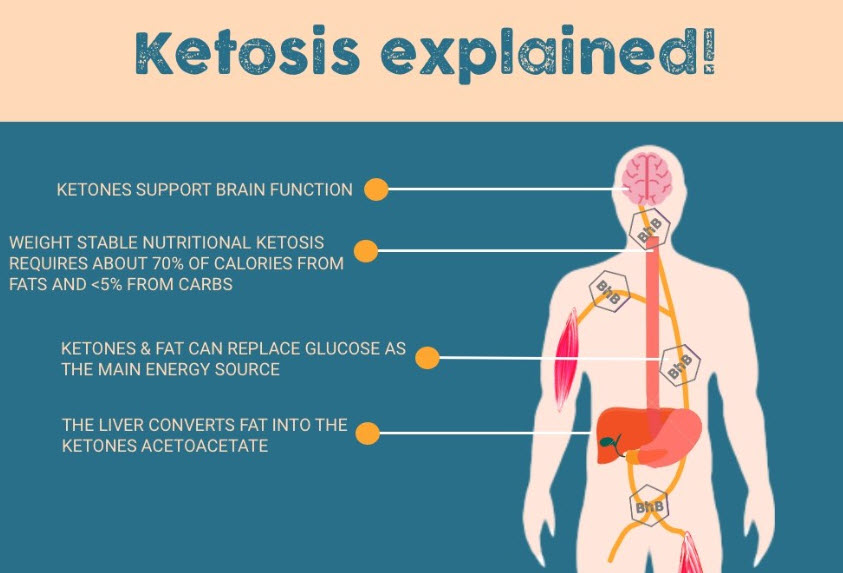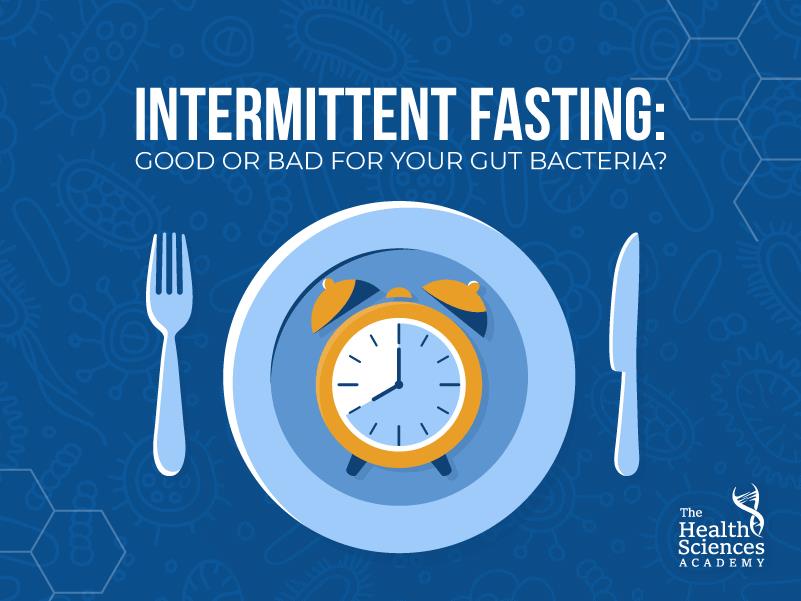
Intermittent fasting is a diet regimen that cycles between periods of eating and short periods of fasting. It's commonly promoted to help you lose weight, improve your health, and promote longevity.
In addition, research shows that certain types of fasting may benefit your gut microbiome. Learn how to use intermittent fasting to achieve a healthy and diverse gut microbiome, so you can reap all the benefits it has to offer.
How Does Intermittent Fasting Affect Gut Microbiome Diversity?
We know that the organisms that live in our gut help regulate our metabolism, muscle function, and immune system. They even influence our emotions and cognition.
To improve your overall health and reduce your risk of chronic diseases, you can eat a variety of different foods to promote a healthy and diverse gut microbiome. These include foods high in prebiotics (foods that promote the growth of beneficial bacteria) and dietary fiber.
While fasting isn't a substitute for eating a nutritious diet, researchers have found that longer fasts (like those that last several days) may change your gut microbiome in positive ways. However, don't overdo it on your fasting periods, and make sure that they aren't completely devoid of calories.
The microbial changes that occur during prolonged fasts can significantly impact the diversity of your gut microbiome. So, if you're interested in promoting the diversity of your gut microbiome, be sure to start and end your fasts with foods that contain a lot of prebiotics and dietary fiber.
Can Intermittent Fasting Promote a Healthy and Diverse Gut Microbiome?
The human gut microbiome is a complex community of trillions of bacteria and fungi that live in the gastrointestinal tract and have a major impact on your metabolism, body weight, propensity to illness, immune system, appetite and mood. The more diverse your gut microbiome, the lower your risk of disease and allergy.
One of the simplest ways to promote a healthy and diverse gut microbiome is by adding more plant-based foods to your diet. This can be done by eating a variety of vegetables, fruit, whole grains and legumes.
However, if you want to boost your microbiome diversity more significantly, consider taking a prebiotic or consuming fermented foods. These can include yogurt, kefir, miso and tempeh.
A new study published in the journal Nature Medicine shows that a 10-week diet rich in fermented foods boosts the microbiome diversity of people. It also reduces inflammation and increases the ability of the immune system to fight infection.
What Can You Do to Promote a Healthy Gut Microbiome?
There are a number of ways to promote a healthy gut microbiome. The trick is to find the right meal schedule that works best for your body and your lifestyle.
Aim for a weekly fasting regimen that mimics your circadian rhythm, like a 16:8 or 14:10 breakdown (not two days in a row). That should get you on the path to a better digestive health.
In addition, be sure to consume plenty of vitamins and minerals during your eating time (like fruits, veggies, and protein) to optimize the health of your gut bacteria. You can also try out a few other types of fasting, such as the water fast and a modified version of a classic juice cleanse. The most important thing is to be patient and listen to your body - the rewards are worth it. The best part is that the results are life-changing. Good luck! You can also give your gut a boost by adding probiotics to your diet.
How Can Intermittent Fasting Help You Lose Weight?
Intermittent fasting is an eating plan that limits your food intake to certain periods of the day. It can be a powerful tool for weight loss and may even help with chronic conditions like high cholesterol or diabetes.
There are many different types of intermittent fasting, so it's important to find one that works best for you. Talk to your health care provider or a dietitian for advice.
Some popular methods include alternate-day fasting and daily time-restricted fasting. These plans involve eating normally one day and then completely fasting or eating a small meal (less than 500 calories) the next.
These methods can help you lose weight while also helping you maintain a healthy and diverse gut microbiome. However, you should keep in mind that they do require some rerouting of your daily habits and might be more difficult to sustain long-term.
Frequently Asked Questions
What is permitted and prohibited during intermittent fasting
For the best results, it's important to be familiar with the rules of intermittent Fasting. It's not enough to eat less. You need to make sure you eat the right type and amount of food during certain times.
Intermittent fasting is a time when you can only eat food and when you have to eat no calories. These "fasting windows" can last anywhere from 16 to 24 hrs, giving your body plenty of time to digest and cleanse difficult-to-digestible foods, as well as to speed up your metabolism.
This doesn't mean that you have to fast. These times are not restricted to drinking water, lemon water or tea. You can also indulge on calorie-free snacks, such as vegetables or fruits. The only restriction is that these must be consumed without added fats or oil.
This is not an excuse to eat sugary sweets and high-calorie foods after your fast ends. But it is a way to ensure that you are eating healthy. After the recommended number of hours you have been fasted, you can start to add unhealthy foods like chips and other unhealthy options. These will quickly undo all the hard work. Avoid high glycemic-index foods at mealtimes and instead eat lean proteins and whole grain grains.
Remember that intermittent fasting does not work for everyone. Everyone's body is different and will respond differently to the same diet. A doctor or nutritionist is recommended before beginning any new eating regimen, especially if you have any medical conditions. It is important to get enough sleep, as well as staying hydrated, throughout this process.
Can you eat anything you want and lose weight while intermittent fasting?
Are you looking to enjoy all the benefits of intermittent fasting while still being able to eat what your heart desires? You can do both! Intermittent fasting is a way to successfully lose weight, while still enjoying your favourite foods.
Intermittent fasting can be very effective in helping you lose weight. It is possible to do this by being careful with your planning and exercising discipline. Tailor your eating windows and plan to include some of your favourite meals in your diet plans. You'll also need to pay close attention to portion sizes and how many additional calories come from snacks or extras like sauces or dressings.
Studies show that when it comes to intermittent fasting, balance is key. Even if you include a few treats, it won't negate the benefits of intermittent fasting. Intermittent fasting is a good way to burn fat, decrease hunger signals, and improve your mental clarity and focus.
Intermittent Fasting is a great solution for anyone looking to change their lifestyle but without giving up what they love! By strategically eating with purpose at designated times of the day, you can continue to enjoy satisfying foods while drastically reducing caloric intake overall! Don't wait! Get started now to experience intermittent fasting at its best!
What are the rules of intermittent fasting?
It takes some knowledge of the rules and regulations to unravel the secrets of intermittent fasting. Generally, this dietary practice involves limiting your meals or caloric intake to particular days or hours within a given day rather than throughout a regular day-to-day basis.
Intermittent fasting basically means that you have to eat for a certain amount of time, then stop eating. You may be restricted in calories or not eating at certain times. If done properly, intermittent fasting can provide many benefits for your physical and mental health, such as improved energy levels, increased focus and concentration, lower blood sugar levels and balanced blood lipids. Lucid dreaming and fat loss are also possible.
But fasting isn't something you should jump into without any preparation or guidance -- establishing proper parameters is essential when setting out on this journey so that you can safely reap its many rewards. And while these rules differ somewhat depending on what version of the diet someone chooses (i.e., partial fasts versus complete fasts), here are some basic guidelines for intermittent fasting: choose a window in which you will eat each day; set specific meals that you will eat; choose foods with low glycemic index; keep hydrated; avoid snacking; exercise before instead after eating; cycle your fasting periods from one week to several weeks, and get plenty rest.
Following these tips will go a long way toward helping you lay the groundwork for successful intermittent fasting sessions so that your experience is both healthy and enjoyable!
What does science say about intermittent fasting
Exploring science's understanding of the benefits of intermittent fasting can lead to breakthroughs in lifestyle nutrition. Intermittent fasting is strategically consuming meals within a certain window and abstaining from food for the remainder of the day. Research shows that proper fasting can improve cognitive performance and metabolic health.
Unravelling how this works involves examining what happens inside our bodies during intermittent fasting. Intermittentfasting is a way to change metabolism. This involves lowering blood sugar levels, and encouraging cells towards fat as the primary energy source. This aids weight loss since it burns stored body fat instead of relying solely on recently eaten food. This process also encourages glucose utilization, which is crucial for maintaining normal metabolic function.
New research on intermittent fasting has shown that it could promote autophagy*, which may have anti-aging benefits. Autophagy can be translated as "self-eating" in English and refers the essential cellular process by which unutilized or damaged proteins are recycled to preserve healthy cells. While there is still much to learn about this potential benefit, we are optimistic about what we know.
Intermittent fasting appears to have positive health effects. However, it's a good idea not to change your lifestyle without consulting your physician. Making healthy modifications should be taken slowly, and you should strive for a balance between diet and activity level adjustments; it's worth talking to an expert about what intermittent fasting might look like specifically tailored for you!
Can I eat all food during intermittent fasting?
For a successful fast, it is important to nourish your body by eating the right food. You may believe you can eat what you like and still get the benefits of intermittent fasting, but you should always follow the rules and restrictions for your specific fasting method.
You need to be aware of what you can and cannot eat depending on your diet. Intermittent fasting is a lifestyle that requires you to eat only during the designated time. Some people follow stricter protocols than others.
Snacks rich in healthy fats or proteins are always a great idea. They can help to keep hunger pangs away throughout fasting. Calorie restriction shouldn't be approached in an all or nothing manner. Even if you do make mistakes, it won’t stop your progress.
It is also beneficial for many to record their meals in order to stay more aware of their dietary habits. This will allow them make better choices regardless of the time they eat. To maximize the benefits of intermittent fasting, it is important to avoid unhealthy processed foods.
Statistics
- consumption was examined in 1 study, which compared dietary fat intake of 45% versus 25% at the expense of carbohydrate intake. (ncbi.nlm.nih.gov)
- IF trials found weight loss of 0.8% to 13.0% of baseline weight with no serious adverse events. (ncbi.nlm.nih.gov)
- Fat consumption was examined in 1 study, which compared dietary fat intake of 45% versus 25% at the expense of carbohydrate intake. (ncbi.nlm.nih.gov)
- When diet composition was controlled, most protocols were consistent with Health Canada and American Heart Association guidelines: 55% carbohydrates, 20% fat, and 25% protein. (ncbi.nlm.nih.gov)
External Links
annualreviews.org
pubmed.ncbi.nlm.nih.gov
- Intermittent fasting: Does it have a place in diabetes treatment? PubMed Review of the Literature and Guide for Primary Care Physicians - PubMed
- Daily Fasting Improves Health and Survival in Male Mice Independent of Diet Composition and Calories - PubMed
ncbi.nlm.nih.gov
- The MATADOR study reveals that intermittent energy restriction can improve weight loss in obese men. PubMed
- INTERMITTENT FASTING AND HUMAN METABOLIC HEALTH - PMC
jamanetwork.com
How To
Eating during an Intermittent Fasting Program:
It can seem overwhelming to have to fast for a specified time period as part of an intermittent fasting plan. It is essential to be able to comprehend the different options available for eating your daily nutrients as well as why certain methods may be better suited for your individual health needs in order for any fasting journey to succeed.
Seamless optimization is possible by controlling the timing and manner in which you consume foods. The window of time during which you eat - also known as your "eating window" - can make all the difference in accomplishing an intermittent fasting regimen while maintaining control over your nutrition and lifestyle habits.
The best way to maximize your energy is to know when you should eat.
Intermittent fasting is a way of digitally portioning out larger multi-meal plans so that fewer food intakes are premised at specific times within each 24-hour cycle. You can manage your digestion and elimination, as well as hormone production, by having fewer meals per day.
Whether it's controlling calorie or macronutrient intake or just plain simplifying meal prep from start to finish, participating in eating windows within an intermittent fast plan isn't tough when you know how to order the essential components correctly! Get started today by assessing your body's needs and determining what type of schedule works best for healthier eating habits than ever before!
Resources:
 |
[Doctorly Unhinged - EP1] Ozempic Woes, DEBUNKING Intermittent Fasting, and the DANGERS of ManicuresSUBSCRIBE TO OUR PODCAST! https://doctorly.podlink.to/unhinged Is this trending medication that’s been touted to cause dramatic weight loss changing |
 |
The Good Life: Intermittent fasting: Ideal for weight loss?We decode the hype around one of the most popular eating methods for weight loss. Is intermittent fasting for everyone? #thegoodlife #intermittentfasting |
 |
Intermittent Fasting: A Two-Month Experiment. Does It Work? | Talking Point | Full EpisodeAfter drinking sugar-laden bubble tea three times a week for a month for an earlier Talking Point episode, host Steve Chia is ready to lose the weight he |
 |
Intermittent Fasting May Have Health Benefits Beyond Weight Loss | TODAYAccording to an article in the New England Journal of Medicine, new evidence suggests that intermittent fasting could provide many health benefits beyond |
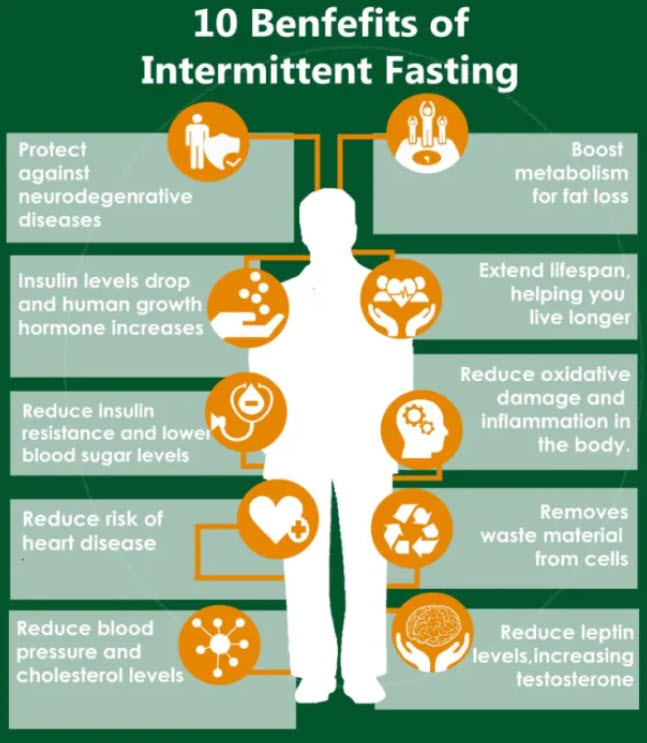 |
Intermittent Fasting For Weight LossWeight loss with Ketosis |
 |
Don’t know whether to cut or bulkDon’t know whether to cut or bulk |
 |
What’s your favorite way to eat chicken?What’s your favorite way to eat chicken? |
 |
Intermittent Fasting TESTED - 30 Day Before & AfterGo to https://NordVPN.com/goalguys and use code GOALGUYS to get a 2-year plan plus 1 additional month with a huge discount. It’s risk-free with Nord’s 30-day |
 |
Intermittent Fasting and Low-Carb DietIf you want to lose weight, try combining intermittent fasting with a low-carb diet. Both methods help you lose fat and control health conditions... |
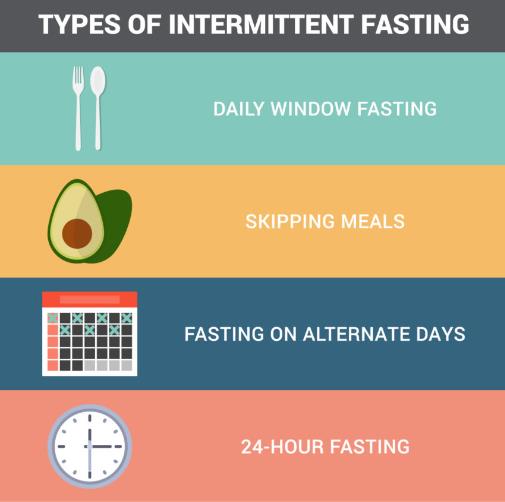 |
Intermittent Fasting For Pregnant WomenWhile intermittent fasting for pregnancy has its benefits, it can also be dangerous. Read on to learn more about the risks and benefits of.. |
 |
Intermittent Fasting Guide for 2022 | Doctor Mike HansenIntermittent Fasting Guide for 2022 | Doctor Mike Hansen Did you know that it's been predicted that by 2030, more than half of the U.S population will be |
 |
How to do Intermittent Fasting: Complete GuideJoin my Email List: https://www.thomasdelauer.com Check out Thrive Market: http://ThriveMarket.com/Thomas Follow More of My […] |
 |
Intermittent Fasting Myths - Top 5 | Jason FungI cover the most important myths about intermittent fasting and why they are not true. Check out my website at https://www.doctorjasonfung.com and blog at |
 |
How Intermittent Fasting Affects Your Body and Brain | The Human BodyStars like Beyonce and Hugh Jackman have spoken out about following intermittent fasting plans to get in shape. How does intermittent fasting work? Here's what |
 |
How Autophagy WorksAutophagy is a dynamic degradation system that promotes tumor survival. It also promotes the growth of established tumors and facilitates metastasis. .. |
 |
How to Start Intermittent Fasting in 2023 - UPDATED INFORMATION & SCIENCEJoin Thrive Market Today to get 30% Off Your First Order AND a Free Gift Worth up to $60! http://ThriveMarket.com/Thomas How to do Intermittent Fasting in |
 |
Intermittent Fasting 8/16You may have heard of the intermittent fasting 8/16 or 12/12 time restriction. This type of fast requires you to go without eating or drinking for.. |
 |
Intermittent Fasting For WomenSide effectsWomen who are looking for a way to lose weight can try intermittent fasting. However, there are several side effects to this type of.. |
 |
How Much Cholesterol in a DayHow much cholesterol in a day depends on a number of factors. While dietary cholesterol is not necessarily bad, excess intake can lead to serious.. |
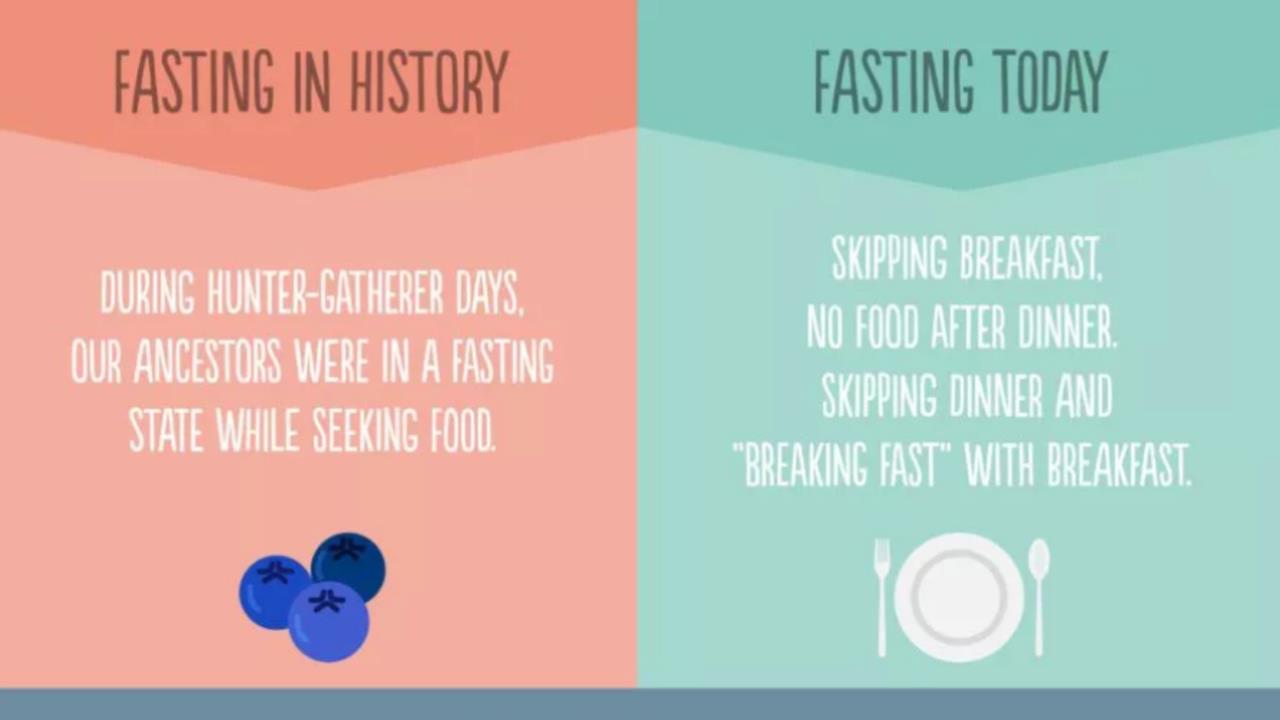 |
Is Skipping Breakfast Right For You?Skipping breakfast has a number of benefits, including the ability to lose weight, improve training performance, and increase growth hormone levels... |
 |
The Benefits of the AIP DietThe AIP diet has a number of health benefits. Besides reducing inflammation and weight, this diet also provides essential nutrients. These include.. |
 |
Is Eating Only One Meal A Day a Good Idea?Eating only one meal a day is not a good idea, and it is not sustainable for most people. It may help some people lose weight, but for the average.. |
 |
What Are the Side Effects of Water Fasting?Water fasting is a form of fasting, where a person consumes only water during a period of time. It may be undertaken for medical reasons or for.. |
 |
Intermittent Fasting and Blood PressureResearchers have discovered that intermittent fasting may have positive effects on blood pressure. Blood pressure affects the risk of heart disease,.. |
 |
Intermittent Fasting For Weight LossAll you need to know about Intermittent fasting and weight loss |
 |
Is it Okay to Drink Coffee on Intermittent Fasting?You might have heard that it's okay to drink black coffee on intermittent fasting. But did you know you can also enjoy a cold brew? What about.. |
 |
How to Start Fasting 48 HoursIf you are considering fasting 48 hours, here are some of the benefits. There are also a few precautions you should keep in mind before you begin. In |
 |
A Psoriasis Diet Can Help Reduce the Severity of Your PsoriasisA psoriasis diet should consist of eating foods that are rich in vitamin A and C, as well as avoiding sugars and processed foods. Avoid eating red.. |
 |
The DASH Diet to Prevent HypertensionThe DASH diet is an eating plan that was developed by the National Heart, Lung, and Blood Institute. It focuses on fruits and vegetables, low-fat.. |
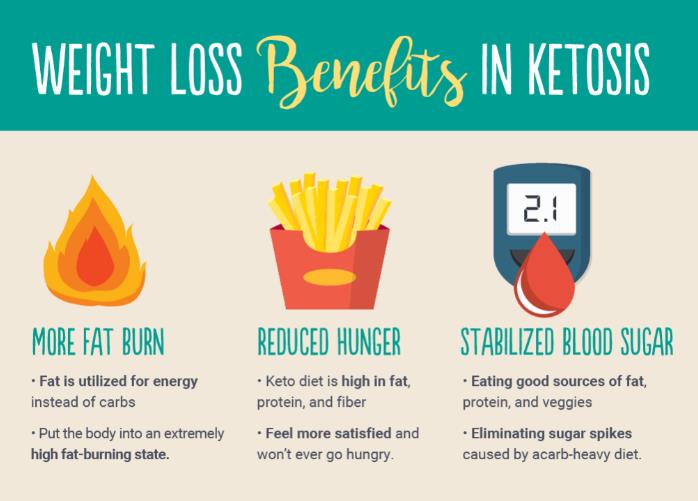 |
LIFE Fasting Tracker - LIFE Apps | LIVE and LEARNThe best, and free, intermittent fasting tracking app for iPhone and Android. Easy to use. Supports all fasting types. Fast with friends. Download for Free. |
 |
Intermittent Fasting AppsIf you're on an intermittent fasting regimen, it's important to keep track of your food and exercise intake. Several apps can help you stay on track.. |
 |
Time Restricted EatingIf you're interested in losing weight or improving your health, you may want to try Time-restricted eating or intermittent fasting. Read on to learn.. |
 |
Reactive HypoglycemiaThere are several different ways to treat reactive hypoglycemia. The first step is to reduce or eliminate your caffeine and alcohol intake. You may.. |
 |
Low-Carb Meal PlansLow-carbohydrate meal plans are based on limiting the amount of carbohydrates you eat. Instead, you replace foods that are high in carbohydrates with |
 |
Intermittent Fasting: What is it, and how does it work?Intermittent fasting involves switching between fasting and eating on a regular schedule. This type of fasting could manage your weight or even some forms of |
 |
How Autophagy WorksAutophagy is a dynamic degradation system that promotes tumor survival. It also promotes the growth of established tumors and facilitates metastasis. |
 |
The 12-Hour Fast - What Are the Benefits of a 12-Hour Fast?The 12-hour fast is a popular dietary approach that can help you lose weight. It forces your body to rely on its stored fats for energy. It has also.. |
 |
Fasting Before Working OutFasting before a workout has its advantages. Not only does it provide more energy during a workout, it can also help with digestion, which can take.. |
 |
Healthy Ways to Lose WeightLosing weight is a great way to improve your health and reduce your risk of certain conditions. It can also reduce your total cholesterol levels and.. |
 |
Intermittent Fasting 101 — The Ultimate Beginner's GuideThis is a detailed guide to intermittent fasting (IF). Studies show that it can help you lose weight, improve health and perhaps even live longer. |
 |
Top Intermittent Fasting AdvantagesThere are many advantages to intermittent fasting as a strategy for weight loss. Intermittent fasting can work with any diet... |
 |
Weight Loss (Low Carbohydrate Diets)Low carb diets have often been used throughout history for weight loss. Although sometimes called a fad, low carb diets have actually more science... |
 |
The Key Factors of Weight LossWeight gain and obesity, like any medical disease, is multifactorial. This means that there are many factors that cause weight gain... |
 |
How Doctors Lose WeightHow do doctors lose weight? For their patients, doctors often advise following standard diets, but when trying to lose weight themselves... |
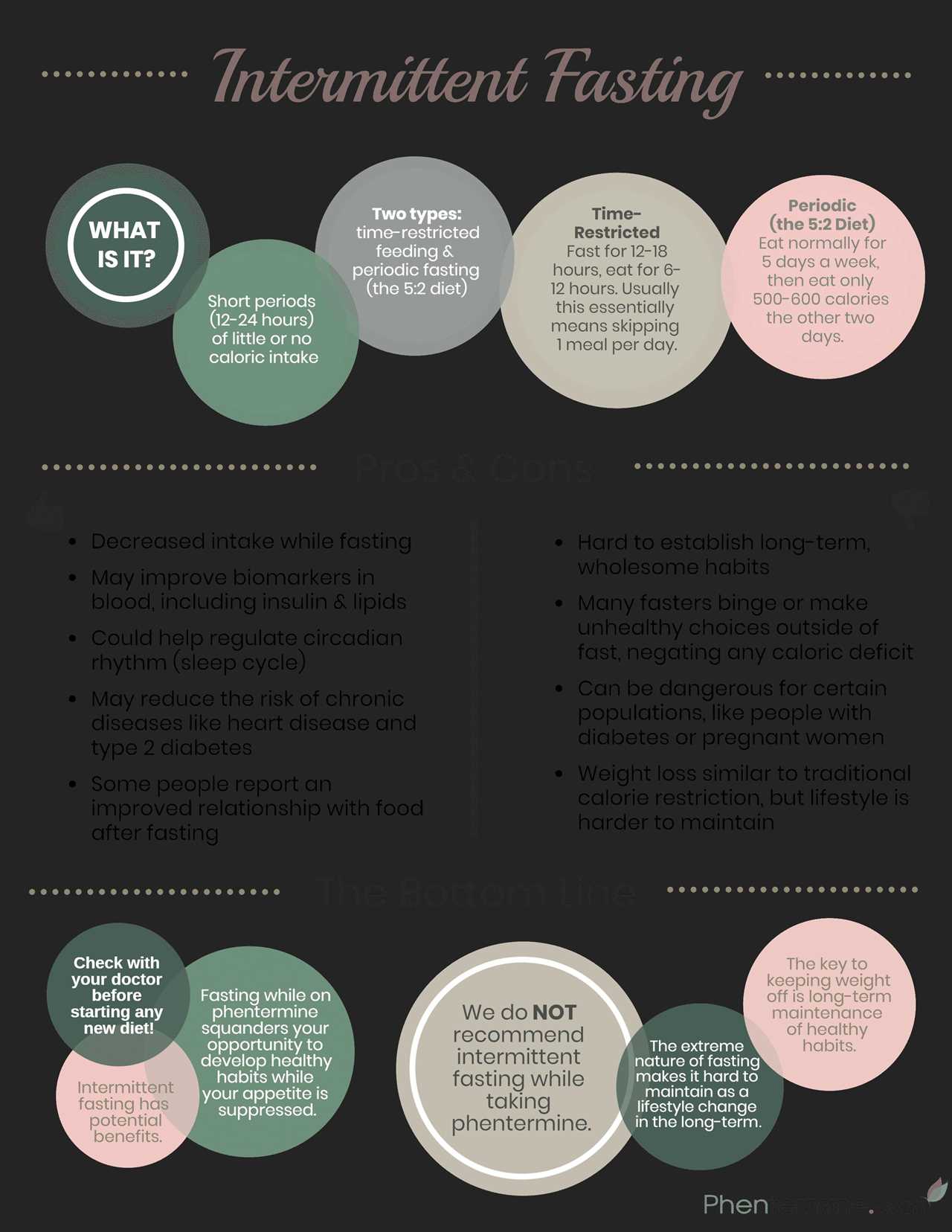 |
Is intermittent fasting good for you?Intermittent fasting isn't new, but it's gaining followers. What's the appeal? |
 |
Vacation Weight Loss PlanWhat is the best vacation weight loss plan? Most people [...] |
 |
Should I (lean-) Bulk or Cut?Should I (lean-) Bulk or Cut? |
 |
100lbs down!100lbs down! |
 |
Calculating the Maintenance calories on workout and rest daysCalculating the Maintenance calories on workout and rest days |
 |
Intermittent fasting: The positive news continues - Harvard HealthHarvard research about Intermittent fasting ... |
 |
Rat Model: Intermittent Fasting Normalizes High Blood Pressure Induced by Harmful Intestinal BacteriaPrevious studies have shown that a harmful combination of gut bacteria can cause high blood pressure (hypertension) in humans and other animals. Having a |
 |
Your D-I-E-T Meditation PlaylistIn my TEDx talk, I suggest recasting the noxious word “diet” into D-I-E-T — a reminder to ask ourselves “Did I Enrich Today?” One of the ways we can enrich…The |
 |
Holiday Health (Damage Control)With the holidays on us, maybe your intermittent fasting schedule isn’t as rigorous as it once was. That’s not necessarily a bad thing, because social |
 |
You Got a Zero.Zero’s not been my hero. Through grade school and college, zeroes used to be something of a monster in my mind. Teachers illustrated just how bad a zero is |
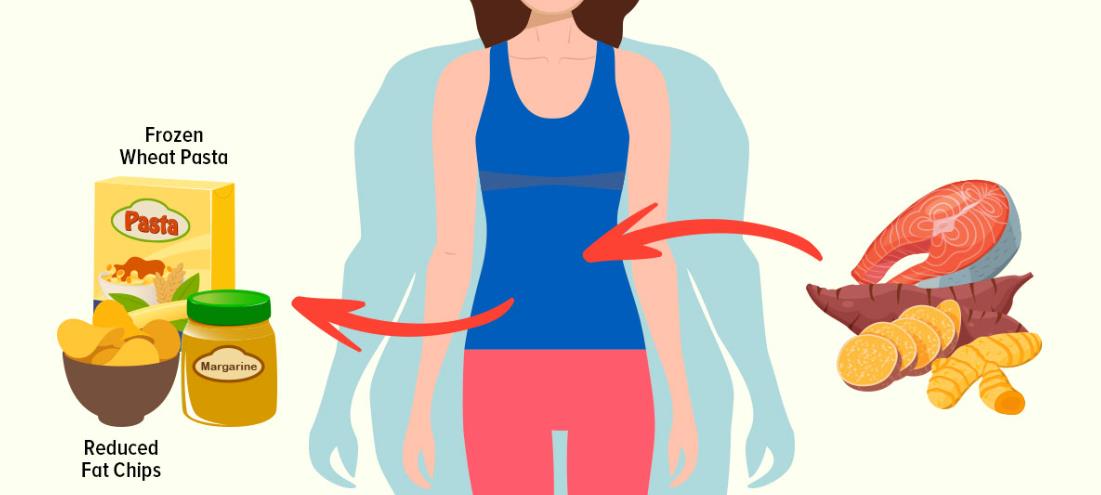 |
Six ways to do intermittent fasting: The best methodsIntermittent fasting is an increasingly popular diet option for weight loss. There are several programs, but this guide can help you find out which one is |
 |
Intermittent Fasting ExperiencesI took part in an energetic discussion of intermittent fasting experiences as part of the release of Women Action Takers Who Gained By Losing for which I wrote |
 |
How to Break a Fast: What to Eat After FastingHow to Break a Fast: What to Eat After Fasting Written by Stephen Anton PhD on May 15th, 2022 How to break a fast? This is an excellent question and one |
 |
How to Believe in Yourself: 10 Tips for Becoming Your Best SelfHow to Believe in Yourself: 10 Tips for Becoming Your Best Self Guest Post by William Anton PhD on June 12th, 2022 William D. Anton, Ph.D is a renowned |
 |
36-Hour Fast (Monk Fast): Everything You Need to Know36-Hour Fast (Monk Fast): Everything You Need to Know Written by Stephen Anton PhD on July 5th, 2022 The 36-hour fast is a challenging fast in that it |
 |
Diet A to Z: Intermittent FastingThe two-day-a-week diet: How intermittent fasting can help you lose weight and boost your health. |
 |
18/6 Intermittent Fasting: Is It the Right Plan for You?18/6 Intermittent Fasting: Is It the Right Plan for You? Written by Stephen Anton PhD on November 29th, 2022 Intermittent fasting has become one of the |
 |
20/4 Intermittent Fasting: The Pros and Cons of a Longer Fast20/4 Intermittent Fasting: The Pros and Cons of a Longer Fast Written by Stephen Anton PhD on January 25th, 2023 There are so many different approaches to |
 |
Everything you need to know about the OMAD dietThe one meal a day (OMAD) diet is a type of time-restricted eating intermittent fasting protocol that involves—you guessed it—eating just one meal a day and |
 |
The ultimate guide to intermittent fasting 20/4When we’re trying to lose weight, we usually think about what we can and can’t eat. Bye-bye beer and burgers. Helloooo carrots and kale! But with intermittent |
 |
The Flexitarian Diet — A Beginner’s Guide by SimpleFrom workouts to working hours, most of us enjoy a little flexibility. So it’s no wonder that when it comes to what we eat, a little wiggle room goes a long |
 |
The Mediterranean diet for weight lossPeople have loved the Mediterranean diet for many years. It’s not a “weight loss diet,” per se. It’s just how people in places close to the Mediterranean Sea |
 |
The complete guide to 18/6 intermittent fastingIntermittent fasting (IF) regularly shows up as many health-seekers’ go-to eating plan, and for good reason. Research suggests that it could have a profound |
 |
The Impact of Different Drinks during Intermittent Fasting: Benefits, Downsides, and ResearchA common dietary strategy called intermittent fasting (IF) alternates between periods of fasting and eating. Apart for water, black coffee, and tea, people |
 |
Intermittent fasting (IF): Your complete guide - Diet DoctorIntermittent fasting is popular, effective, and easy. This guide tells you how to get started with a successful intermittent fasting routine. |
 |
Intermittent Fasting and Muscle Gain: Benefits, Downsides, and ResearchA common dietary strategy for people who want to increase their muscle mass while also aiding fat loss is intermittent fasting (IF). Although IF has mostly |
 |
Burning Belly Fat: Intermittent Keto vs Intermittent Fasting – Which is More Effective?Visceral fat, commonly referred to as belly fat, is the fat that builds up around the midsection and is associated with a number of health issues, such as |
 |
When you’re ill, is intermittent fasting safe? Precautions and considerations.Those who want to reduce weight, get healthier, or even live longer are increasingly following the trend of intermittent fasting. Yet if you’re sick, you might |
 |
When Intermittent Fasting Stops Working: Reasons, Solutions, and EffectivenessRecently, intermittent fasting has become more well-liked as a technique to reduce weight, enhance general health and longevity, and even improve mental |
 |
5 Intermittent Fasting Methods, ReviewedIntermittent fasting comes in many shapes and forms. This article reviews its pros and cons so you can decide if it's worth a try. |

